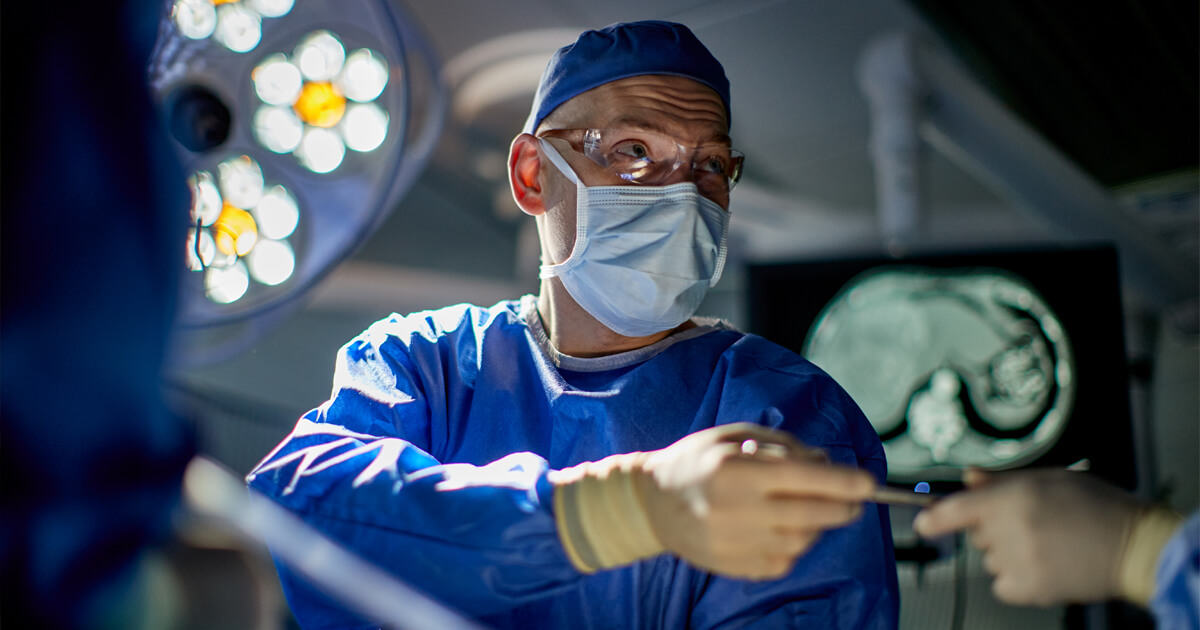Preparing for an Organ Transplant

Having abdominal organ transplant surgery is a major life event. Before arriving at this stage, you have likely undergone many treatments and medications over the years based on your health condition.
Depending on the success of those treatments, a transplant may be the last resort taken to restore your organ health and help you live an improved life.
It’s normal to have lots of questions as you prepare for surgery. AHN Surgery Institute’s nationally-recognized transplantation program at Allegheny General Hospital (AGH) offers testing, diagnostics, surgery, and recovery resources to support you every step of the way.
What is an abdominal transplant?
An abdominal transplant replaces a failing or diseased organ in your abdomen with a healthy organ from another person (a donor).
The most common abdominal organ transplants are:
- Liver transplants
- Kidney-only transplants
- Pancreas-only transplants
- Simultaneous kidney and pancreas transplants
Preparing for your transplant
If you’re preparing for an abdominal transplant, your AHN care team will work closely with you to make sure you're ready by completing the following steps.
Pre-transplant evaluation: If your physician determines you would benefit from an abdominal organ transplant, a referral will be placed to AHN’s Abdominal Transplant Center. You will then be selected for a comprehensive evaluation by the AHN transplant care team that includes physicians, surgeons, pharmacists, finance, and social workers.
Listing and matching: If the AGH team determines that you are a candidate for an organ transplant, you will be added to the national organ transplant waiting list. Our experienced transplant coordinators will manage this process, keeping you informed about your status and providing ongoing support. AHN has one of the highest transplant rates in the region, and our patients experience shorter wait times for abdominal organ transplant than other hospitals in our region.* If you have a live donor, you could bypass the waitlist and receive an abdominal organ transplant earlier. The AGH living donor team will help you and your donor navigate each step along the way.
Preparing you for surgery: We'll provide you detailed instructions including dietary guidelines, medication adjustments, and pre-operative tests.
Building your support system: Having support from your friends and family helps ensure a successful transplant recovery. We can provide resources to help your loved ones understand your needs.
Your transplant team
Transplant surgery is a complex procedure performed by our highly-skilled team at AGH. Our surgeons use advanced techniques to complete your procedure as safely and effectively as possible. You’ll be closely monitored throughout the entire surgery.
Your surgical team: You will be in the care of experienced surgeons, nurses, and anesthesiologists — all committed to providing the highest quality care.
Post-operative care: Immediately after surgery, you'll be transferred to the Intensive Care Unit (ICU) in case of liver transplant, or the transplant medical floor (in case of kidney or kidney pancreas transplant). Our nurses in the ICU and on the transplant floor are experienced in post-transplant care. They will provide specialized support to manage your needs.
Transplant recovery
Recovery from an abdominal transplant can take between 4–12 weeks, and ongoing care is very important.
In the hospital: Many patients only spend 3–4 days in the hospital after kidney transplant surgery and about 7–10 days after pancreas or liver transplant. During this time, you will receive specialized care including medication management, wound care, and physical therapy.
After the hospital: Once you leave the hospital, you will continue your rehabilitation and recovery for several months. This may include physical therapy, occupational therapy, and nutritional counseling to help you get your strength and independence back.
Medication and follow-ups: You will need long-term medication to prevent organ transplant rejection (the transplanted organ being attacked by your immune system). AHN provides follow-up care including regular check-ups and blood tests to make sure you stay healthy.
Ongoing support: We understand that your journey doesn’t end after surgery. We offer resources including support groups, online resources, and access to our dedicated transplant team for your ongoing questions and needs.
Learn more about preparing for a transplant
Contact AHN’s Surgery Institute at Allegheny General Hospital to learn more about our abdominal transplant program and why AGH consistently receives one of the highest hospital ratings in patient quality, safety, and satisfaction.**
We're here to answer your questions and help you navigate every step of this important journey. Visit Kidney and Pancreas Transplant or call to schedule a consultation: (412) 362-8677.
Source: Kidney and Pancreas Transplant. ahn.org.
Source: Allegheny General Hospital Recognitions. ahn.org.
About Reem Daloul, MD
Reem Daloul, MD, is a transplant nephrologist and Medical Director of Living Donor Kidney Transplant with AHN Medicine Institute. She is skilled at the diagnosis and treatment of acute complications of kidney and kidney-pancreas transplants and has expertise in living donor kidney transplants for patients with chronic kidney disease.
Allegheny General Hospital (AGH) has provided exceptional health care services to residents of Pittsburgh's North Side and surrounding communities since 1886. Our physicians are renowned in their fields. Together with nurses, technicians, clinicians, and support staff, our team delivers advanced care in nearly every medical and surgical specialty.

